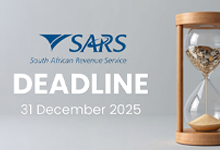NPO? NGO? NPC? PBO? What’s the Difference Anyway?

“A rich man without charity is a rogue; and perhaps it would be no difficult matter to prove that he is also a fool.” (Henry Fielding, English writer and judge)
Across the country, tens of thousands of groups run feeding schemes, environmental projects, schools, clinics, and training centres, often built on passion rather than profit.
But while “NGO” is the word most people use, it’s not actually a legal term in South Africa. Entrepreneurs who fund or collaborate with non-profits need to know what each term really means, because it affects compliance, governance, and whether your donation qualifies for a tax deduction.
Alphabet soup: What does it all mean?
| NGO (Non-Governmental Organisation)
NGO is a broad, informal term used for any group doing social good outside of government. It could be a community group, a youth initiative, or a local charity. There’s no single registration for an “NGO” in South Africa and literally anyone can use the label. |
NPC (Non-Profit Company)
Some charitable organisations register as NPCs with the Companies and Intellectual Property Commission (CIPC). This suits organisations that want a more formal company structure, complete with directors and a Memorandum of Incorporation. |
| NPO (Non-Profit Organisation)
An NPO is a specific legal status created by the Non-Profit Organisations Act. You need to apply to the Department of Social Development (DSD) with your constitution or founding document. Once approved, you get an official NPO number and a certificate that opens doors which funders, corporates and even banks. Non-Profit Companies (see below) can also apply to be NPOs, in which case both sets of rules apply. |
PBO (Public Benefit Organisation)
Both NPOs and NPCs must apply to SARS to become PBOs if they want to unlock the tax benefits available to charitable organisations (more info below). |
What’s the point of registering?
Many groups, particularly small ones, will run perfectly well without registering. Registering does, however, bring a number of real advantages.
- It shows funders and partners that the organisation is credible and accountable.
- It lets the operators open a business bank account in the organisation’s name.
- It qualifies the organisation for funding from government, corporates, and the National Lotteries Commission.
- It’s the first step toward tax exemption.
Any entrepreneurs working with or donating to a cause should always ask for proof of registration as an NPO or NPC.
When does “non-profit” mean tax-free?
Here’s where many people get caught out. Just because an organisation is registered as an NPO doesn’t mean they are automatically exempt from tax. To enjoy tax benefits, like exemption from income tax and giving donors section 18A certificates, the organisation must also apply to SARS for Public Benefit Organisation (PBO) status. (Being granted Section 18A status requires a separate approval on top of PBO status.)
That approval comes with conditions: funds must only be used for approved public-benefit activities, and annual returns must be filed. PBO status will always make an organisation more attractive to donors because their contributions can now become tax-deductible and exempt from donations tax.
How do finances and reporting work?
| NPOs
Must keep proper accounting records and submit annual reports to the DSD. Within six months of their year-end, they must prepare a statement of income and expenditure, a balance sheet, and an accounting officer’s report confirming compliance. Must have a committee or board. These individuals carry fiduciary responsibility, meaning they are directly accountable for how the funds are used. |
NPCs
Follow company law and must lodge annual returns with CIPC. An NPC that is also registered as an NPO will also have to comply with the requirements for an NPO. Must appoint at least three directors. These individuals carry fiduciary responsibility, meaning they are directly accountable for how the funds are used. |
While this might sound like a lot of admin, it protects both sides. Donors get transparency, and the organisation builds a track record for future funding.
Three key questions
Anyone partnering with a non-profit should always review its governance set-up before committing resources and be able to answer the following questions:
- Is it registered with DSD or CIPC or both?
- Does it have PBO approval from SARS?
- Are its financials current and submitted?
If the answer is “yes” to all three, then you are working with an organisation that’s not just doing good – it’s doing good in the right way.
Outstanding Tax Debt? SARS’ Expedited Debt Compromise Ends 31 December 2025

“The South African Revenue Service is always ready to assist taxpayers to fulfil their legal obligations.” (SARS)
Acknowledging that taxpayers often find it difficult to settle tax debt due to financial challenges, SARS has launched an expedited debt compromise process to help eligible taxpayers settle outstanding tax debts swiftly and on more favourable terms.
The normal debt compromise process remains available to all taxpayers, and learnings from this expedited process will be used to enhance the broader system.
What is a debt compromise?
A compromise is a written agreement between SARS and a taxpayer in which SARS agrees to accept a reduced amount as full and final settlement of a tax debt.
Once the taxpayer pays the agreed amount and complies with the terms, SARS waives the balance of the debt. However, if the taxpayer defaults or fails to remain compliant, SARS can reinstate the full debt.
Expedited debt compromise eligibility criteria
- The process applies to non-disputed tax debts older than 12 months.
- You must be a client of a registered tax practitioner.
- Your tax returns must be up to date (even if payment is outstanding).
- The following exclusions apply: entities subject to specific legal processes (such as liquidations, estates, and business rescue cases), companies that are deregistered, cases subject to criminal investigation and audit, as well as cases within the write-off process, taxpayers who have had a compromise in the past three years, and taxpayers who have the means to pay but refuse to do so.
Submission requirements
Taxpayers applying for the expedited tax debt compromise process must provide comprehensive relevant supporting documentation with their applications, which must be submitted by 31 December 2025.
These documents include:
- Latest Annual Financial Statements (not older than one year)
- Last six months’ bank statements
- Cashflow forecast for 12 months
- List of Assets and Liabilities at market value
- Debtors’ age analysis
- Details of any connected persons
- Details of assets disposed of in the last three years
- Disclosure of future or contingent interests in assets
- Details of assets under the taxpayer’s control (including through trusts)
- Current and projected income for the next three years
- Application letter with clear motivation, including the proposed settlement offer amount, and the source of funds to pay the offered amount
- Collection Information Statement (CIS) request with reasons and proof to compromise the debt.
It is important that disclosures are accurate – if they aren’t SARS might not even consider the application.
SARS has committed to resolving qualifying applications within four weeks, using dedicated teams and enhanced workflow management.
Approved compromise settlements may be paid either in full (once-off payment), or in instalments as agreed by SARS.
Act now to avoid escalation
From 1 January 2026, SARS will escalate enforcement against taxpayers who remain non-compliant and have not applied for compromise. Such enforcement may include civil judgments against the taxpayer, writs of execution, collection of money from third parties such as banks, attachment of taxpayer assets, holding directors or members personally liable for the debt, sequestration or liquidation of the taxpayer, or preservation of assets against the debt. To support this intensified enforcement, SARS is engaging 260 legal collectors and 30 legal practitioners.
If you are struggling with long-overdue tax debt, this expedited tax debt compromise process may offer your best chance to finally resolve it – on favourable terms, nogal.
R&R for Better Business Performance? Here’s how…

“Sometimes the most productive thing you can do is relax.” (Mark Black)
By prioritising rest and relaxation (R&R) over the holidays, businesses can cultivate a healthier, more productive, and more resilient workforce – which ultimately leads to sustained high performance.
Here’s why R&R matters for your business performance… And how to help your team make the most of their December break.
6 ways R&R boosts business performance
- Prevents costly burnout. Chronic stress leads to burnout, which dramatically decreases performance and increases employee turnover. Regular rest maintains sustainable energy and enthusiasm, protecting your investment in talent.
- Unlocks creativity and innovation. Downtime allows your subconscious mind to process information and make new connections. Those breakthrough ideas rarely happen amid non-stop meetings and deadlines but rather emerge when your brain has space to wander.
- Sharpens decision-making. Fatigue impairs cognitive function. Rested leaders and employees analyse situations more clearly, weigh options more effectively, and make sound strategic decisions that move the business forward.
- Increases productivity and focus. Paradoxically, working non-stop decreases productivity. Taking breaks recharges the brain, improving concentration and efficiency. Research shows that the busier people are, the less creative they become.
- Enhances problem-solving. Stepping away from a challenge provides fresh perspective. You’ll often return with quicker, more effective solutions than if you’d powered through.
- Improves team communication. When people are tired or stressed, communication suffers. Rest enhances the ability to listen attentively, express ideas clearly, and avoid conflicts caused by fatigue-driven reactions.
How to maximise your team’s December leave
With the December holidays in a few days, now is the ideal time to encourage your team to make the most of the leave days.
A good starting point is to ensure your team knows that taking leave is essential: some people need permission to step away from their responsibilities.
Also encourage complete disconnection during leave days, reminding your team members that effective rest means genuinely disengaging from work and doing whatever their heart desires, be that hiking the Otter Trail, spending time with the family or embarking on a DIY project.
To reduce anxiety about taking time off and allow everyone to truly switch off when they’re on leave, you need to plan ahead. Work with your team now to establish clear out-of-office dates, handover protocols, and emergency contacts. And ensure projects are covered and clients are informed long before the holidays begin.
Finally, remember to lead by example – when managers and business owners take their own breaks and visibly disconnect, it gives everyone else permission to do the same.
Rest well, start well
Rest is not an indulgence, it’s a strategic investment in your business’ long-term success.
A well-rested team will return sharper, more creative, and ready to tackle challenges with renewed energy in 2026.
